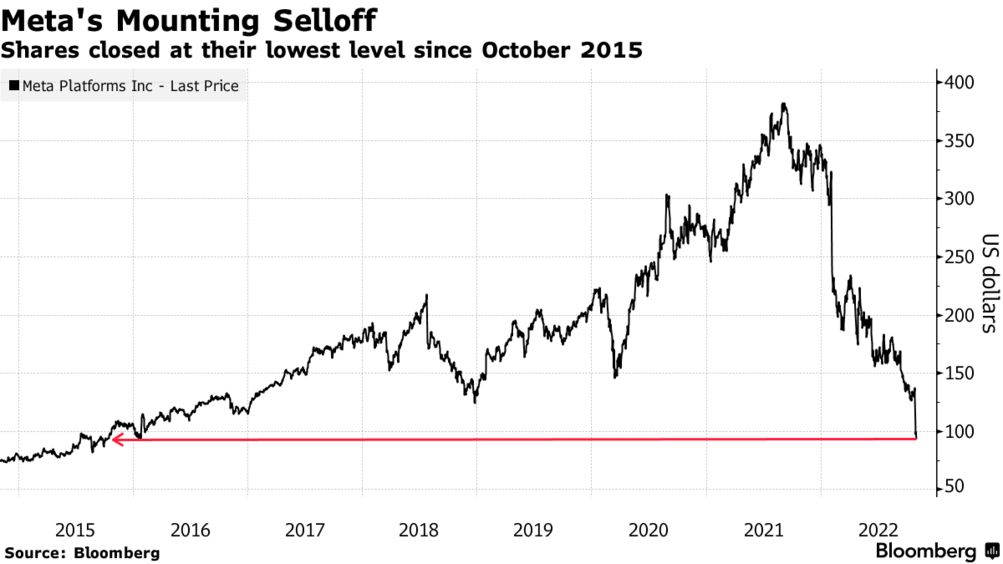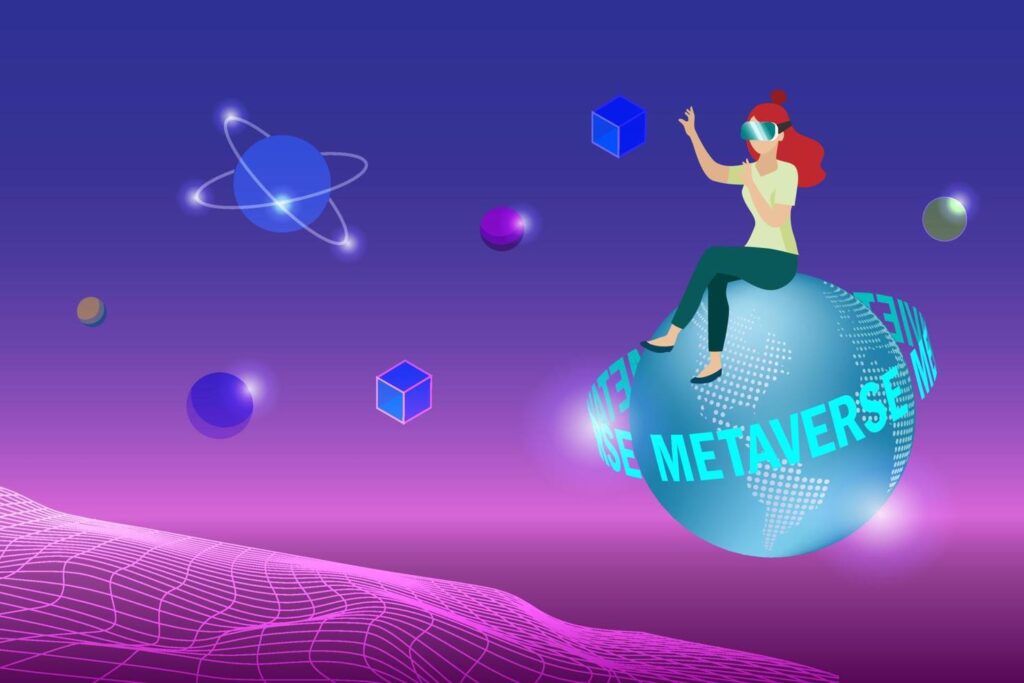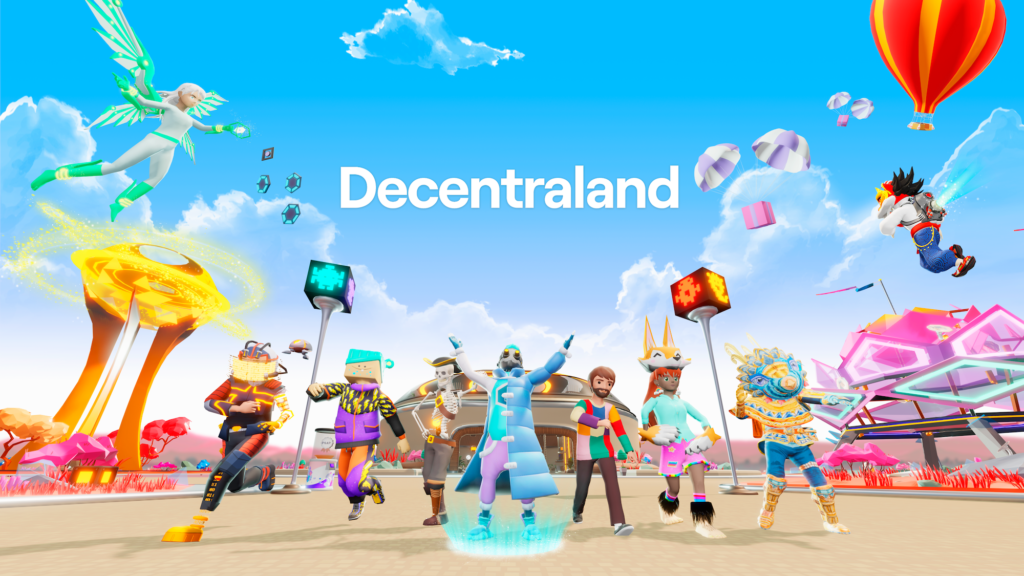By now, hyper-predatory and often downright criminal behavior of those who exploit have overshadowed crypto and the Metaverse.
Its very existence is in jeopardy.
The whole thing is pretty bizarre. But one crypto bro has taken the most significant L – Mark Zuckerberg has lost over 70 billion of his wealth and cut his company’s valuation through his unadulterated obsession with the Metaverse. Facebook has been slowly declining everywhere, but the Meta rebrand might have pushed it over the edge on a collision course with cultural irrelevancy, the modern-day equivalent of bankruptcy.

Today we’re going to go through what Mark gets wrong about the Metaverse. So why is he so obsessed with it? Soulless and Inhuman awards are no stranger to the Facebook founder since he arrived on planet Earth in the early two thousand. Facebook has been polluting our lives with menial and uninteresting content, better known as our loved ones. Mark’s always had a strange relationship with humans.
You can trace the origins of his Neo University law status back to 2010 and the premiere of the social network. The film did some severe damage to Mark’s reputation cause it helped reveal some of his more sinister behaviors to the public. Though he tapes his webcam and lives far away in a secluded mansion like a Disney princess, he has an unsatiable hunger for the unauthorized collection of other people’s data. And like most addictions, this would first become harmful in 2004. Mark used his control over Facebook to break into fellow Harvard students’ email accounts to read their private messages, calling his first-ever users dumb fucks for trusting him in the first place. Facebook’s entire business model has always relied on two fundamental things, keeping users on the app as long as physically possible and extracting as much data as you can from those users while they’re on.
This made Facebook so powerful, but there’s a problem with both, and Mark thinks the Metaverse might be the only solution. Taking the second point first, Facebook has a downright terrible reputation for privacy, from false changing uses of privacy settings to the Cambridge Analytica scandal. What’s become apparent in recent years is just how voraciously Facebook exploit its user base by data mining them for profit. Mark once said privacy is no longer a social norm, which is undoubtedly true in the world he envisions. Combine these scandals with a generally growing awareness in society about the dangers of squeezing data out of users like a caper. You’ve got a big problem for the burgers companies like Apple and now potentially devastating Facebook’s business model. The more precise you can make an ad, the more people will appear to put it in front of someone, meaning this is where Mark’s hefty profits come from.

Apple will now allow users to limit the precision targeting that can be done on them, which alone Facebook estimate to account for 10 billion profit lots. The increasing consumer awareness pushes the whole industry in a direction that could be better for Facebook. And a big fear for Mark is that he will slowly lose access to the artery that supplies the blood to Facebook’s heart. A telling quote he once made was what’s good for the world is not necessarily suitable for Facebook. Back to the first point, the average person spends over three hours a day using their phone, but increasingly those users are choosing not to spend that time on Facebook. Partly this is just an inevitable flaw in Facebook’s design: anti-Pauline can’t produce the same quality content as an ADHD-riddled 19-year-old on YouTube who’ll pretend to be your friend for more money a year than you’ll make in your entire lifetime.
Facebook stopped being cool around when all the grandparents got on. Now all the fun happens on more anonymous Reddit and Twitter accounts, fun social media, Facebook being left for generic holiday pictures and posts about Worm de horse, but also a particular problem for any social media site. The company’s monetization is what will eventually kill it. It’s what has been killing it. Facebook sites aren’t saturated with ads that push users away. So how do you solve these two problems? How can you force users onto your ecosystem and get their eyes glued to those sweet revenue-generating ads?
To Mark, the answer is evident through VR headsets, and the Metaverse, which he’s betting will be the following primary interface with the internet. Aside from just demolishing Facebook’s legitimacy and carving through the Berg’s stash of wealth, meta is bankrolling the entire VR industry, admittedly producing the first genuinely good VR headset or at least purchasing the last people who did make it. Because the Oculus is both wireless and much more affordable than every other VR system. Meta is leading the market for wearable face tech. So how does this investment in a VR headset which you can remove, solve the problem of users putting their phones down?
And this is the crucial point. It’s not about the headset – it’s about ownership. Right now, no one owns the internet. So from Facebook’s perspective, the most influential players are the companies who make the users of the physical device to access the internet.
So Apple and Samsung, as we’ve seen, these players have too much influence on Facebook’s advertising capability for Mark’s liking. Still, in his vision for the Web three era, mark desperately hopes the opposite will be true, that the Metaverse will be an opportunity for a direct connection to users where hardware becomes a powerless access point to the ecosystem. Part of the appeal of the Metaverse for people who like it is that you could live your entire virtual life in one location rather than the internet being many disparate app platforms with no interconnect ability. And if Meta could be the ones to operate the infrastructure that powers all those connections, that’s a compelling position.
Think of it this way. You go to Facebook to use it and avoid it just because it’s Facebook. So Mark instead hopes that you won’t go to Horizon Worlds, you’ll just be living your entire digital life on a platform that meta happens to operate, and you won’t even realize it.
Metaverse isn’t a thing a company builds. It’s the next chapter of the internet overall.
Mark Zuckerberg
It’s not about you using a product. All the games you play, the friends you meet, the work you do, and the movies you see could all be facilitated through the Metaverse. Every app on an iPhone comes from the app store. Instead of being an app, mark wants Meta to be the next app store, the gateway to an entire digital universe he controls. It’s a long-term battle for freedom of the internet itself, and meta is now floating the market with the Oculus headset to try and wedge itself in the door to this emerging market opportunity. Mark believes at least the first realization of the Metaverse will be through VR. Whoever can gain control over the Metaverse would have direct access to the flow and movement of personal data of all the users on it. Not to mention being able to shove ads anywhere and everywhere they want instead of Facebook existing is just one of the many players on the internet.

Mark wants to deeply embed meta into the very fabric of the internet in a way that can’t be separated. Oculus would also become a conveniently precise tool for analyzing users. Suddenly Facebook could have direct access to your physiological reactions, seeing exactly how you respond to what you are presented with your value to Mark’s Internet is the sheer ocean of data you generate as a byproduct of existing. In a world where the dependency on digital interfaces is a fact of life, mark has already been caught running psychological experiments on Facebook users without permission.
So trusting a man whose greatest inspiration is Roman Emperor Augustus Caesar with access to such a powerful technology doesn’t fill me with optimism for the future of the internet. But thankfully, for now, horizon Worlds, Facebook’s attempt at building the Metaverse, wholly fails. It is the most soulless iteration of the experience ever created, and that’s why Mark will not succeed at realizing his empire.
It’s the living embodiment of corporate Memphis, the graphics and Erie hybrid mix of Nintendo, me, and an animated YouTube Russian content farm. Far Cry three came out a decade ago and looked like this In Horizon worlds. The combination of the lack of users in the utter absence of anything meaningful to do means a direct experience will be floating around legless alone and needing clarification in what looks like the backrooms bred with a corporate motivation poster. Meta even pairs employees to stand around and populate this verse, teaching users how to interact with the shallow and lifeless world around them, teaching these guys how to climb a tree.
The resemblance to Wii Sports is Only Skin Deep. Is the mini-games Horizon World’s feature has no fascinating designer mechanics? They’re the VR equivalent of Candy Crush and Farmville games for people who have never really played a game before. More like an introduction to living full-time in an HR department hellscape.
What Facebook gets wrong about VR in The Metaverse is shown through their complete disregard for what makes already successful versions attractive. Like Second Life or VR Chat. People are drawn to these because it is an escape from your own life and get a chance to be something you’re not. That’s why the weird side that those games are known for is quite important.
The act is a medium to express things you’re not comfortable doing in real life. If you want to understand what I mean, I recommend watching a video like Humans of VR, where people share their darkest moments in VR. This is touchingly poignant about watching Chi’s bright and cheerful face as this poor woman recounts the most traumatic memory of her entire life.
Instead, Horizon World is a uniquely sanitized VR experience, a joyless corporate dimension where there’s no fun, no furries, and no below-the-waste action. One of the only exciting things to do is visit the Standup Comedy Club, which has a similar but more corporate vibe as VR Chat. But again, because users drive the content, not meta, there’s nothing specifically worth using Horizon Worlds for when you could go and play any other game that does it ten times better. It’s not fun being a lower fidelity version of yourself, but that’s how Mark sees Horizon Worlds being used, a kind of bit compressed representation of the real world. When the success of the Metaverse depends on users coming to Facebook’s platforms specifically, you will have to offer a better version of what developers made 15 years ago.
The market especially sees the Metaverse becoming a center for work and collaboration, as seen from the promotional material. Still, the company itself needs to learn how the tool benefits anyone. You’ve got a woman using a headset at a desk that allows it to see three screens, though, for the price of the Oculus Pro, you could buy about 15 screens. Meta thinks you’d maybe prefer to buy their headset. And the problem with this use case is that meta is trying to replace what’s already the most convenient interface with something more expensive and complex to operate. The limited use case where VR is useful is in industrial applications where handling dangerous machinery can be trained without the risk of permanent injury or death. The critical difference between this and adding sick decals to an augmented skateboard is the reason companies will pay good money for a VR headset to train a worker is that when an industrial lathe crushes your arm down to the thickness of an envelope, they’re now liable for around $169,000 compensation for the inconvenience that might cause you.
It’s not about immersive workplace collaboration; it’s about cost-effectiveness. You can buy a lot of VR headsets for the price of one arm, so outfitting a workforce with VR headsets so that meetings can look like a bipedal amputation support group isn’t a compelling use case. Having your colleagues visible in your own realize is terrible enough. So why Mark thinks I’d like to have them now digitally burned into my very retinas when I could use a screen is entirely beyond me. One day the Metaverse will infect our lives the same way all the technology we regard as usual already has. But I believe meta will fail with their version. Being able to plaster cheap synthetic emotions on Mark’s lifeless face would help him pass much easier as a human. But despite funneling billions into their Metaverse, they’ve created a soulless and hollow world of misery.
So considering Horizon Worlds is markedly less fund than other VR experiences and far less convenient than working in the real world, I imagine only a few people are going to be that enthused about joining it. The very fact it’s operated by the social media equivalent of specific means. I will also fight using it with every last fiber of my existence. Considering Facebook knowingly pioneered the technique of making social media debilitatingly addictive to suck as much life out of its user base as possible, a name change isn’t going to make me forget how parasitic Facebook is as a company. I’m just a technophobe, but I don’t feel like living in a world where unelected tech giants control and monitor every aspect of our lives. It’s fundamentally good when I hear stories about PayPal attempting to implement a policy where they siphon cash out of people they don’t feel have the correct opinions. Or the fact that utility companies may one day has the final say about whether or not you can heat your home.

It makes me feel deeply gratified when things like Decentraland fail. I do accept one day, much of this technology will advance to a point where it’s no longer an option to opt out, much like you can’t exist without an email or a phone number now. In the words of ordinary things, the Metaverse eventually won’t be something you can escape to. It’ll be a layer of technology you can’t run from.
But for that to finally happen, for people to start using the Metaverse, it would need to get to a point where the fidelity is so great. It is almost indistinguishable from meeting someone in real life. I’m glad the Metaverse is failing because I get awful motion sicknesses while wearing those VR headsets. So you know, that’s my bias.
You’ll one day see me begging for spare change on those cold meta streets as I’ve been blacklisted from all the major employers for making this video. But until then, you’ll only find me on the technology layer. I’ve already been brainwashed enough to accept discord, where everything is excellent and 2D like God intended, and I don’t feel physically nauseous.
But I can’t tell if that’s the VR headset or just the thought of the Berg.













